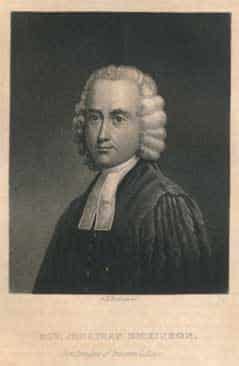Divine Providence Ordered the Choice of a Vocation and Decided the Course of A Life
by David T. Myers
Our title for this post is a long one, but it was certainly the case for our featured character today, namely, David Blair. Born November 21, 1787, David was the eighth of eleven children born in the parish of Donagor, County Antrim, Ireland, to Hugh and Jane Blair. They all attended a Presbyterian church until for some unknown reason, they transferred their membership to a Seceder Presbyterian church in the same county. In good weather, the local Covenanter pastor would preach in the barns and groves of their fields. But in time, the whole family decided to travel to America for a new life. With a family this large, some five different times were scheduled to take the family to the American colonies. The part of the family which included young David, took 66 days to cross the Atlantic Ocean, landing at Philadelphia, Pennsylvania!
Upon landing, the family traveled by wagon to Pittsburgh, and on to Steubenville, Ohio, where a married daughter was living with her family. Eventually, the entire family moved to Crawford County in Pennsylvania, where several hundred acres were purchased and cabins built for the family. At this time, David Blair was around sixteen years of age. Reading a book which his older brother had given him, the young teen was encouraged to apply to the gospel ministry in 1805. Attendance at Jefferson College in Canonsburg and eventually at the theological Seminary of the Associate Presbyterian Church, David began his preparation for the ministry, pursuing those studies diligently. Licensed to preach on August 29, 1816, David received a call from three Congregations in Pennsylvania. However, rather than immediately receiving it, David begged for an opportunity to travel for a year in ministry throughout the South. He did that on horseback, and then returned to the three congregations. Eventually, he was ordained on October 7, 1818, a full two years after he had been licensed for the ministry. Married to Margaret Steele of Huntington in 1821, she proved to be the woman who helped him greatly in his life and ministry. Forty-four years of pastoral ministry characterized his service to His God and church in Pennsylvania.
Another minister summed up those pastoral laborers saying, “David Blair remains like the venerable oak that has withstood many storms and tempests. Many in his congregations look to him as their spiritual father. He baptized you in infancy. He first gave you the emblems of a Savior’s broken body. He joined you in marriage with the companions whom you call the fathers and mothers of your children. His deep toned voice and direct prayer has gone up from your chambers of sickness. His venerable form has led the processions that carried your loved ones to the grave. Thiese congregations should still honor him as their spiritual father.” David Blair would go on to glory on February 28, 1882.
And so, by this post, we authors and readers own him as one of the spiritual fathers of the church in America, who faithfully labored in small and large fields of ministry, faithfully proclaiming the blessed Gospel of our Lord Jesus Christ.
Words to Live By:
Reader! Think of some pastoral minister who was instrumental by God’s Spirit to be that one who was described in the above paragraphs as “the venerable oak” to you and yours. Thank God for him right now. Reflect on how he was used of the Holy Spirit to minister God’s Word to you and your family for a time, carrying out the ministerial actions mentioned in the above paragraphs. Question? If still alive, has he been the recipient of your gratitude spoken and written? Can you not return the spiritual favors rendered by various means, perhaps even monetary gifts, in time of need? Writing as a retired pastor, I can recount with joy various expressions of gratitude, even monetary, which former members of my several congregations have given to me. Do other pastors need to hear some such encouragement from you?

